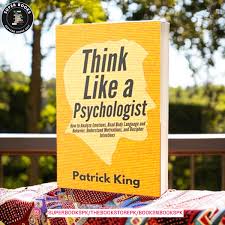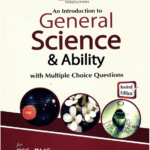Description
The concept “think like a psychologist” is a way or an approach designed to understand how psychologists break down the minds and analyze human behavior, emotions, and mental processes. This would apply psychological principles, critical thinking, and scientific methods toward the evaluation and understanding of the thoughts, feelings, and actions of people. Here’s a brief overview of what it means to “think like a psychologist”:
Key Components:
Observation and Analysis:
A systematic and objective view of behavior is taken by psychologists. The way people act in most situations is paid attention so that there are attempts in identifying patterns or inconsistencies in behavior.
They consider body language, facial expression, and tone of voice while understanding the emotional state and intentions of a person.
Understanding Motivation
Psychologists want to make sense of why humans do what they do. They examine what drives people from within (for example, desires, needs, fears) and what influences behavior in the external world-whether it’s environment or social forces.
They then explain human behavior using motivation theories like Maslow’s Hierarchy of Needs, or self-determination theory.
Critical Thinking and Scientific Method:
Thinking like a psychologist involves skepticism of assumptions and bias for dependence on empirical evidence in drawing conclusions.
Psychologists apply the scientific method: hypothesizing, experimentation, and tabulation of results to test their ideas concerning behavior.
Psychologists avoid jumping to conclusions and give consideration to alternative possible explanations before judging.
Empathy and Perspective Taking
A psychologist tries to comprehend people’s emotions and experiences from the inside view point, practicing empathy. Hence they can easily reach out to individuals and understand the particular experiences and problems in their lives.
They stop judging and try to understand the causes that emanate due to emotional factors, cognitive factors, and the social factors that describe an individual’s behavior.
Application of Psychological Theories:
Psychologists use developed theories and structures, for example, cognitive-behavioral theory, psychodynamic theory, or humanistic approaches to study behavior and the mental processes.
These theories present structured methods of understanding how thoughts, emotions and behaviors relate to one another and how psychological distresses might be managed.
Problem-Solving and Mental Health:
Psychologists tend to think of problem-solving when issues are considered relevant to emotional and mental health. They guide the person to identify their issues, at what level the problem is rooted, and provide them with recommendations on how to deal with or try to solve issues.
They often use techniques like cognitive restructuring (helping people challenge negative thoughts), mindfulness, or exposure therapy to make people unlearn undesirable behaviors and thought patterns.
Why Think like a Psychologist?
Better Relationships: Understanding how other people think and feel can provide better insight into how to communicate and empathize with those people and associates.
Better Decision Making: An analysis of a given situation using the critical thinking approach of a psychologist may be more informed and better rounded in decision-making.
Self-awareness: Thinking like a psychologist would enable an individual to be more reflective of his or her thoughts and actions, thereby developing better on personal levels.
Mental Health Awareness: Thinking like a psychologist enables the individual to realize mental health issues in himself or herself and in others, which would give way to better mental wellness and compassionate support.
Overall, it promotes a curious, thoughtful, and scientifically-minded understanding of human behavior and psychological processes.










Reviews
There are no reviews yet.